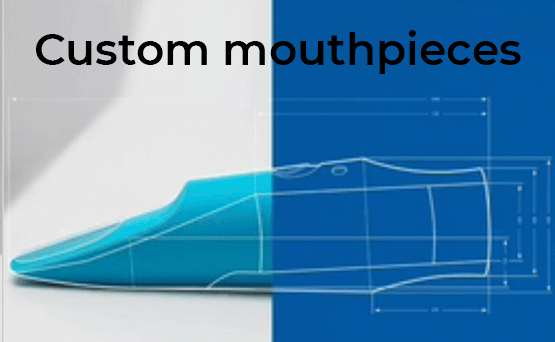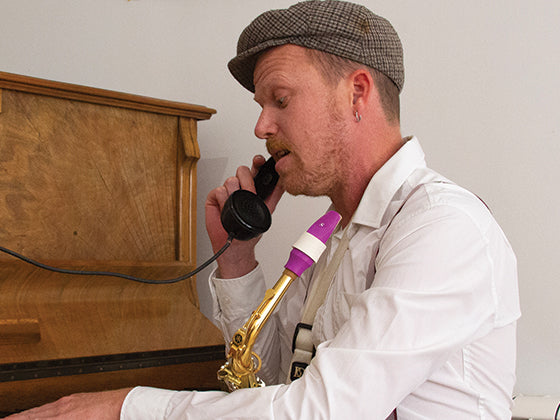When playing saxophone (or clarinet) on a regular basis, it can become difficult to stay motivated to practice daily, and over an extended period of time. It is often easier to leave the instrument out on its stand, or to put it away in its box, all clean and shiny, while the urge to play grows thinner by the day. One can also be discouraged when a piece they are working on seems too difficult - or too time-consuming - to learn, leaving them unmotivated.
The obvious question you may ask yourself in those moments of doubt is the following: how to keep the motivation to play the saxophone or clarinet when I don’t feel an irrepressible desire to do so? How can I, in the long term, develop and keep this urge to make music?

What is motivation?
Motivation is a complex term to define. Greek philosophers have put their minds to it, followed way down the line by psychologists and researchers in work organization optimization. Thanks to their works, it was agreed that motivation is a force that drives us , while also requiring constant nourishment, by defining goals, by maintaining a balance between our needs and our wants.
If you are passionate about playing the saxophone or clarinet, if your goal is to master these instruments and the urge to play resembles a physical need, then it will be all the easier to stay motivated to pick them up and play them. However, a passion, as strong as it may be, can fade away, can get lost behind other important things in our lives, become less of a priority. This is when it becomes hard to keep up. Striking the right balance between what makes us who we are and what puts food on the table has never been an easy task.
This is why it is important to find ways to keep your motivation, or to find it again - and lucky you, we have a few tips and tricks to share with you today!
What’s around you matters more than you think
It is essential to feel good about where you are playing. Whether it be in your living room, on your balcony or out in a park, you have to be at ease, well rested, and most of all comfortable. A healthy work environment, clean and tidy, well lit and ventilated allows you to attain an optimal level of focus when playing your instrument.

If you are making music at home, make sure to have enough room to move around, coupled with a clean - natural or artificial - light, take your time to relax, and get to it! Adjust those parameters to your liking, so that you can really feel “at home” where you are, wherever it may be. Ask yourself if you would rather be on your own in a room or with other people, take some time to test out different places and multiple arrangements. Do not forget to take breaks regularly and to hydrate well, and do not underestimate ear fatigue if you are playing at a high volume for a prolonged period of time.
Speaking of volume: if you are in an apartment, your neighbors will surely appreciate you taking breaks often, and you can even try to play softer than usual in order not to bother them too much! Your state of mind is as important as your environment, and it is also possible to “arrange” it to your liking, by giving yourself goals on the short, mid and long term. A mid-term goal could be knowing how to play an entire composition, and one for the long term could be to become part of a band! It is up to you to decide which direction you want to take, and how far you want to go!
On your own or with others, what’s the best way to play?
Everyone has their own conception of music, their own way of hearing it, of imagining it. Of course, practicing alone allows you to make mistakes without having to face the judgement of your peers, but feedback and advice, whether positive or negative, are essential to make progress. And even more so when talking about music.
Some people like to make music when they are all cosied up at home, while others will prefer meeting with friends or colleagues in a café or a bar to put on a show. Overall, it is easier to appreciate the music we make when we can share ideas with others. Taking a theme that is not your own and making it evolve, passing from one instrument to the next and then playing it all together, for example. It is very important to know how to value what you produce, but creating an osmosis with other artists is a feeling hardly comparable with any other. What makes music beautiful is when it is shared and enjoyed collectively, when you feel someone jamming with you to the same tune.

And for those of you who would like to get feedback on your performance, you should check out the many Facebook groups available out there for saxophone and clarinet players to share what they make and get some advice, so that you may improve and share your passion with people like you. The Saxophone or Clarinetists advanced chat Facebook groups are full of resources to help you learn!
When you love you don’t count the cost, and versatility is key!
It can be tough to experience a lack of motivation. But when it comes roaring back, time flies by so fast it becomes hard to perceive. If you can so easily forget the passing of time when you really want to play, you should also allow for periods of rest so that you can let motivation build up again.
You need to challenge yourself to accept that it sometimes takes a little while to do so, to give yourself some time to do something else. If you don’t feel like playing saxophone or clarinet, then maybe going to see someone play will help you rekindle your motivation. And it works the other way around, too: when you feel that it is here, that you really want to play, you have to seize the opportunity and give it all you’ve got. Put your watch and phone down, pick up your sax or clarinet, and play until your arms fall off (well, you probably don’t have to go that far, but you get the idea).
Finding the optimal time to play implies knowing when rest is necessary in order to be as efficient as possible. It is essential to switch up between different activities, just like you would vary your meals or your outings. Leaving some room for hobbies, leisure time, work or studies, as well as time spent with friends or family will help gather energy and find the will to play when the time comes.
Wherever you are, and whatever you do, your brain and your body need versatility in your daily activities, they need to alternate between busy times and resting periods.
Professional advice
To round everything up, the Syos team would like to give you some advice, through a non-exhaustive list of tips.
.e13b1334-5758-4eef-bb76-898818f5ef9d.png)
The real key is to listen: either to other saxophonists/clarinetists, as we have previously mentioned, or to other instrumentalists, in order to find inspiration and the urge to play. It is also very effective to pick out a solo that you like, maybe in a different style to what you are used to playing, in order to get out of your comfort zone and to discover new things, or even to play pieces you have already mastered, and that you like a lot, to let your memories help you get motivated. Playing every day, even if it is only for five minutes at a time, in order to create a habit, helps a lot with consistency, which is a key to success. Leaving your instrument out on its stand so that you can see it, recording or filming yourself while playing to pick out your weak points, and even having a go at arranging a track in order to perfect yourself and see where you need to edit or change some elements. Another effective technique to keep up your practice is to set yourself some rules or challenges, for example playing only eighth notes or only long notes, or even trying to play something an octave lower than you usually would.
We would also like you to tell us in the comments what techniques YOU use to stay motivated to play the saxophone or clarinet on a daily basis!!
In addition to this professional advice, we have published articles on our blog to give you exercises to train at home:
We are also firm believers in the fact that the easier it is, the more you want to play. And Syos mouthpieces offer an ease of play hardly comparable with others. Here is what some of our customers had to say about this:
Nick Pilgrim - "[...]The takeaway is that the Syos mouthpieces allow the player so much control; for students and amateurs it means we enjoy playing and get more confidence… and so we play more and get better! Fantastic."
Stephen McKenzie - "It plays very well, tone is incredible and it easily allows me access to my low notes. It actually makes you want to play more because it is easier to play with it and that is the best benefit of all. If a pieces makes you WANT to play you will always improve at a faster rate because you are playing more and having more fun doing it. Love love love the new mouthpiece! [...]"













